Today Pali Hill in Bandra, Mumbai is a sustainable neighbourhood with abundant greenery, clean roads with flower beds, round the clock security, organised door-to door garbage collection and segregation culminating in an innovative biogas plant producing energy from wet waste.
No doubt a major change from what it was two and half decades ago, when Illicit liquor brewers were a common sight, as were drug peddlers operating under the guise of paanwalas and cobblers. Residents were also burdened by the stench emanating from garbage bins on the streets, bad roads, rash drivers, and frequent burglaries.
That is when a group of women banded together in 1998 to lead Pali Hill’s transformation.
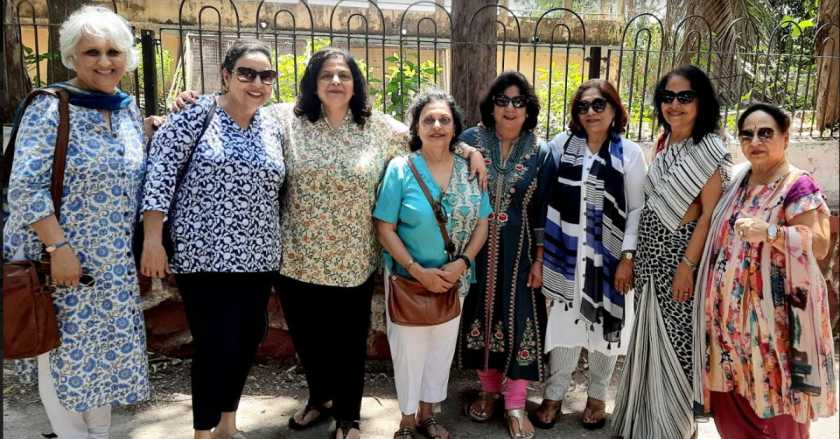
Resident Sumi Mehta, who initiated the movement, says she was inspired by the happenings around the world. “I used to read about cities all over the world, about garbage segregation and how they keep their areas clean and beautiful. I felt I, too, should do something for the place I live in.”
Eventually, this collective of eight women snowballed into a people’s movement under the banner of Pali Hill Residents’ Association (PHRA), as more women and men joined hands. A managing committee was elected with Sumi Mehta as the chairperson and Dr Amitav Shukla as the secretary. Since then, committees have changed, but the good work has carried on.
It has been no cake walk, say PHRA members, who had to work round the clock, meeting residents, civic officials, police officers and others repeatedly. “To me it was a mission,” says Sumi. “I had an enthusiastic and supportive team of women. We used to spend two hours every day going around meeting residents, civic, police officials, etc.”
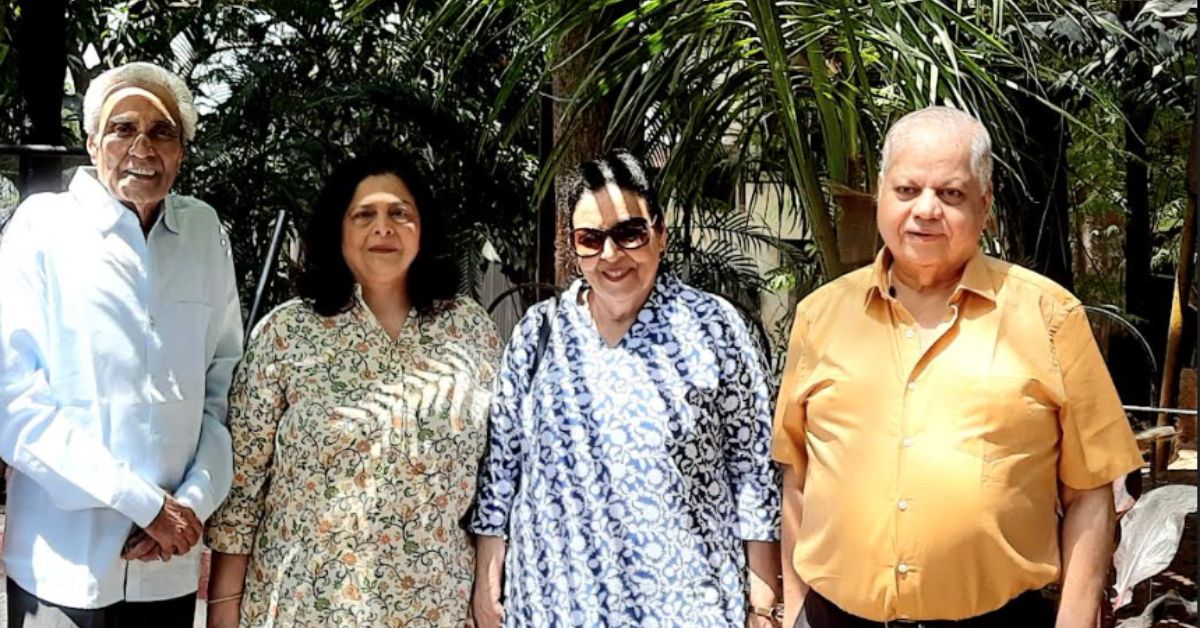
‘They were not convinced that women like us would achieve anything.’
Current PHRA secretary Madhu Poplai, who has been carrying forward the mission since Sumi left in 2004, concurs. “In those days, we used to visit our ward office and police station regularly, like how people visit temples. We would drop our children at school and then proceed together.” Madhu has been a PHRA member since its inception, and has been holding the post of either Chairman or Secretary for the last 16 years
Going in groups is effective, says Sumi. “When working for a public cause, always work and move around in groups, more so when meeting officials. Keep on knocking their doors till they hear you. Involve housewives and retired men.”
As for funding, PHRA originally requested residents to contribute Rs 360 per flat per annum, and Rs 1,200 per bungalow per annum. Today, they have raised the amount to Rs 900 and Rs 2,500 respectively. “Initially, people thought we were collecting money to have kitty parties or for our household expenses. They were not convinced that a few women like us would achieve anything,” recalls Sanchali Sarkar, present managing committee member, who was among the team that went house to house to gather funds.
Apart from the managing committee with 21 members (18 women and 3 men), there are many volunteers, largely women. Pali Hill has 79 buildings and 23 bungalows. “While the housing societies collect the monies from their members and pay it to PHRA, bungalow owners pay it to us individually. The compliance level is 95 to 98 percent now. People are trusting us and donations from individuals and corporates are also coming in” reveals Madhu.
And men, too, have been playing a significant role in Pali Hill’s transformation. “We all can, and should, find time to work for the betterment of our people and our area,” avers Sonu Chagti, present managing committee member who looks after roads, security, and the environment.
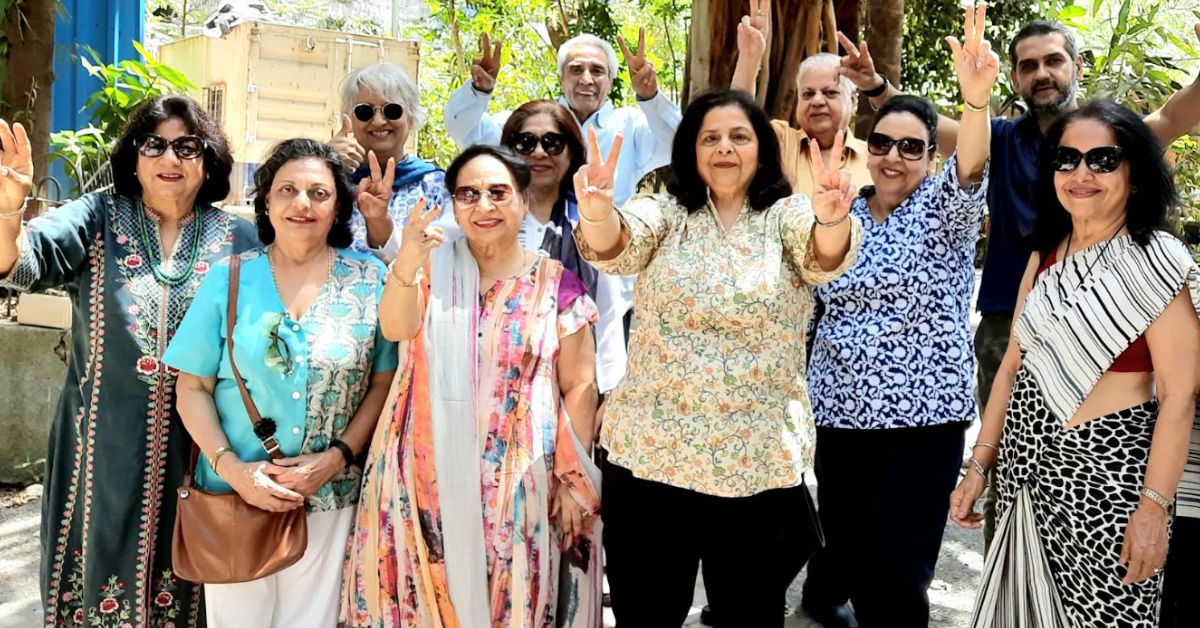
PHRA achieved a significant milestone when their garbage management led to producing energy from wet garbage.
The work was a decade-long endeavour, starting with door-to-door garbage collection, where members worked towards creating awareness about segregation, overcoming initial resistance, and finally implementing it with BMC’s help. “By 2019, we were segragating almost 90% of our waste. As a result, garbage going to the dumping ground reduced from 2.2 tons to 800 kg per day” informs Madhu
It was with this segregated wet waste that PHRA set up a biogas plant in collaboration with BMC on the Pali Hill Water Reservoir ground in 2018. “The plant converts one ton of wet waste daily into about 160 units of energy, which powers our street lights, as well runs the plant. It generated electricity worth Rs 8-10 lakh at no cost to BMC, and saved an additional Rs 3 lakh spent on garbage transportation. The residual compost is distributed for free among housing societies for community gardening,” states Madhu.
PHRA raised Rs 30 lakh as funds for the installation and maintenance of the converter for three years through CSR activities.
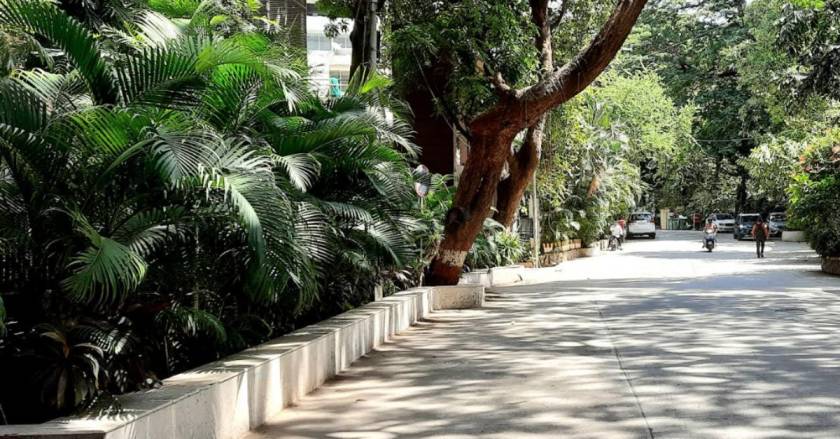
Madhu elaborates, “We had to do considerable paperwork and convince BMC to provide the land. While we provided the wet waste and raised funds, BMC provided the land and technical support. Since the plant requires one ton waste, we asked nearby restaurants to give their wet waste, as residents could produce only 680-690 kg per day”.
After running the plant successfully for three years, PHRA handed over the plant to BMC in 2021, as per mutual agreement
A stellar transformation
PHRA has scaled up their security too, in association with Khar police, say members. “Apart from security guards, we also have 19 high-definition night vision security cameras on our roads, which can even read a vehicle’s number. They are monitored by Khar police station,” reveals Sonu.
A housekeeping team keeps the roads clean through regular sweeping, maintains the flower beds and saplings planted. Tree cutting is totally banned here, as is digging up roads by utilities without PHRA’s permission. To ensure proper resurfacing of roads, PHRA collects a refundable deposit from all utilities before they dig up the roads. Likewise, they have set some conditions for builders undertaking redevelopment at Pali Hill.
Born and brought up in Pali Hill, Rajeev Kaushik an airline pilot who has witnessed the transformation, is all praise for PHRA’s efforts. “Pali Hill looks very clean and green today. The biogas plant is an innovative project that is lighting up our streets, saving on electricity with zero carbon emission.”
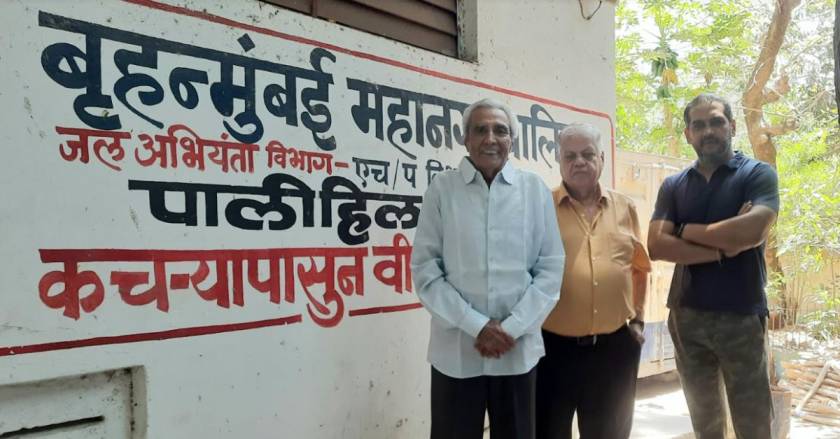
Over the years, PHRA has won accolades individually and jointly with BMC, for their biogas plant, effective garbage management and in general for their contribution to the environment. The awards are from the Ministry of Environment Forest and Climate Change, Ministry of Housing & Urban Affairs, Skoch Group and Bhamla Foundation .
‘Our work will never stop’
Collaboration rather than confrontation has been PHRA’s policy all along, and has helped them succeed in their endeavours. “When the officials see our enthusiasm and realise, we will not take no for an answer, they start helping. And when they see the good work we are doing, they respond positively,” says Dr Shukla.
Assistant Municipal Commissioner Vinayak Vispute, H west ward, notes, “PHRA is doing good work and the biogas plant is an innovative project, which continues to work under our care. They also support us in many of our initiatives.”
While the pandemic has posed a challenge for PHRA in terms of slackening of waste segregation, the association is trying to bring things back on track by the end of this year. “During COVID our segregation slowed down and now it is between 55 and 60%. We are trying to raise it and achieve zero garbage by the end of this year. Our future plans include setting up a seven-ton biogas plant to convert wet waste to CNG and enable all civic/ police vehicles in our ward to run on CNG, free of cost. Our work will never stop. There will always be something to do,” avers Madhu.
Written by Janaki Krishnamoorthi
No comments:
Post a Comment